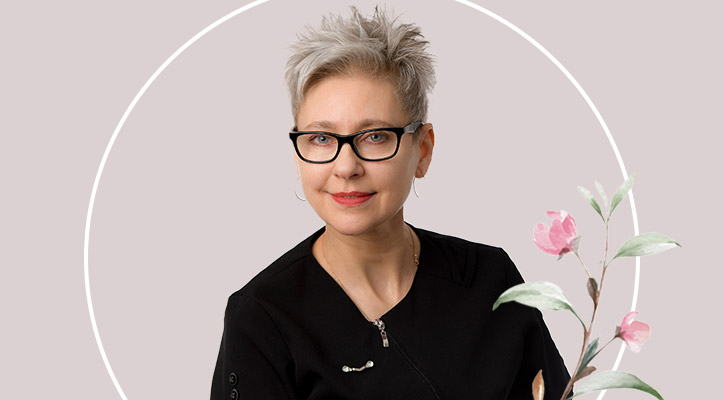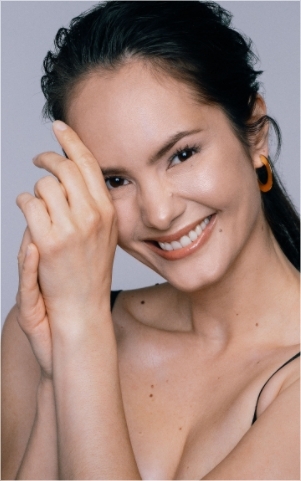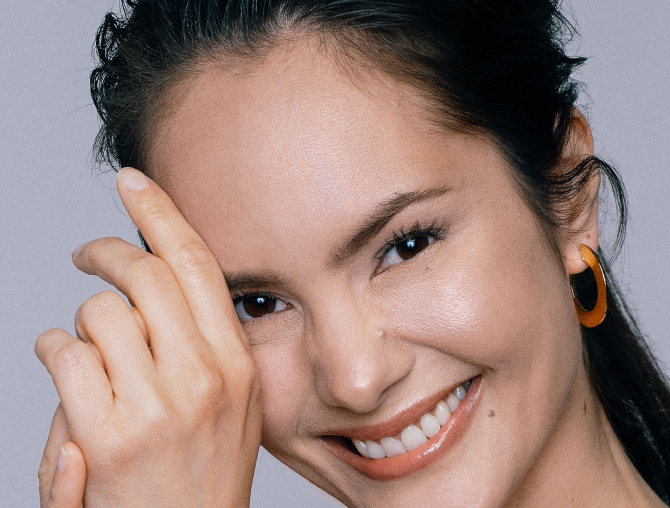Sometimes it can feel like there is no end to the types of transformative changes that can affect a woman’s body, from puberty to childbirth (for some) and then to menopause (for all of us), which can kind of feel like the icing on the cake—or the not so welcome cherry on top.
No matter how chill you are about hitting menopause, the effects it has on our moods, our bodies and on our skin are real, and quite honestly, we have enough to deal with on a daily basis. So if there’s something we can do to alleviate some parts of the menopausal transition, like the adverse effects it can have on our skin, we are all ears.
Here are some top treatments and skincare products for menopausal skin.
What is menopause and menopausal skin?
You’re considered to be in the menopausal stage of your life when you’ve missed your period for one year and this had no other cause. Most women will experience menopause in their 50s, but some may experience it sooner, even as early as 35 and up.
And even if you’re the average age when you experience menopause, menopausal symptoms will begin several years before your actual period stops, and most of these symptoms, from mood swings to hot flashes, from having trouble sleeping to anxiety, are far from enjoyable.
The main culprit, as in puberty, pregnancy and then after childbirth, is fluctuating and irregular hormonal activity. For menopause in particular, not only are you dealing with hormonal fluctuations, but your body begins to produce way less estrogen, which (when it comes to your skin) is pretty much everything.
Estrogen is what stimulates collagen production in your body. It’s what helps your skin retain moisture, and what allows your skin to protect itself in a number of ways.
The loss of estrogen means less collagen production, and we’re talking quite a bit less. On average you’ll lose 30% of your collagen in the first five years of menopause, which leads to thinner skin, the appearance of more wrinkles and a loss of elasticity, which often causes the skin to sag particularly under the eyes or around the jawline and neck.
The loss of estrogen also leads to the loss of moisture retention and therefore dryer skin. It can also result in the onset of adult or hormonal acne, which often appears around the chin and jawline.
Ways to Combat Menopausal Loss of Collagen
The loss of collagen is often the main concern during menopause, but the right combination of in-clinic treatments and at-home skincare products will ensure that you make up for a part of that loss.
Microneedling treatments with PRP (platelet-rich plasma) are excellent collagen boosting treatments.
PRP, which can be done in combination with microneedling or a as a filler treatment is particularly effective if you’re looking for skin regeneration and skin cell turnover in addition to collagen production. It’s particularly effective in reducing the appearance of fine lines and wrinkles that seem to appear overnight with menopause, and also a great treatment for the under-eye area if this is an area of concern for you.
If you’re looking for a major collagen boost as well as the build up of volume over time that will leave your skin more smooth and supple, Sculptra is also a great option. Sculptra acts as a stimulatory filler, getting your body to produce collagen while also regenerating tissue structure. It requires a bit of patience before you see results, but the results are long lasting and make a big difference in overall skin rejuvenation.
For at home skincare, the best collagen boosters are Retinol and AHA. Retinol works to firm up and refine the skin while AHA really promotes new healthy skin cell turnover and collagen production while simultaneously gently exfoliating the skin.
Skincare for Dry Skin
There are a number of ways to combat dry skin. It’s key to start with protecting it from sun damage with an SPF of a minimum of 30. A rich and thick daily moisturizer like our Miracle 10 Rich Moisture will also help the skin to effectively retain water which it begins to fail to do on its own with estrogen loss.
If you want to combine deep hydration with collagen production then we recommend microneedling in combination with HA (hyaluronic acid). HA is already naturally present in our bodies but it gets significantly depleted during menopause, so sometimes the skin just needs that little bit extra in order to restore volume and revitalize the skin.
Filler treatments with HA will also do the trick to restore moisture and volume in sunken areas of the face, but may produce less collagen over time than microneedling treatments that really awaken that wound healing response, which is ultimately what stimulates collagen production in the body.
It’s important to keep in mind that menopausal skin tends to be thinner and therefore more prone to bruising, so for most in-clinic skincare treatments you may have to account for more downtime than you did before.
Treatments for Hormonal Acne During Menopause
Menopausal skin is generally annoying, but dealing with acne breakouts in your forties and fifties makes you really feel like you’re going through puberty all over again. It can honestly feel like you just can’t catch a break.
We actually see quite a bit of “adult-onset acne” in menopausal skin, but there are ways to keep the breakouts at bay.
Morpheus8 which combines deep microneedling with radiofrequency (RF) treatment is one of our best weapons against acne as it has the capability of eliminating the bacteria that causes acne in the first place.
We also recommend regular Miracle 10 facial peel treatments, which work to exfoliate the skin and with our dermaplaning technique to keep the top layer of the skin free of dirt and oils that can cause acne flare-ups. Glycolic or salicylic acid which are typically applied during our peel treatments are also key ingredients for combatting acne.
If you’re looking for something to use as to home to keep those acne flare-ups to a minimum then products like AHA Gel and Renewal Complex include glycolic and salicylic acid, along with tons of other active ingredients that deliver all kinds of benefits to the skin. Retinols are also your friend when it comes to treating acne. You really want to ensure that you are regularly using products and getting treatments that gently exfoliate the skin to keep bacteria away.







